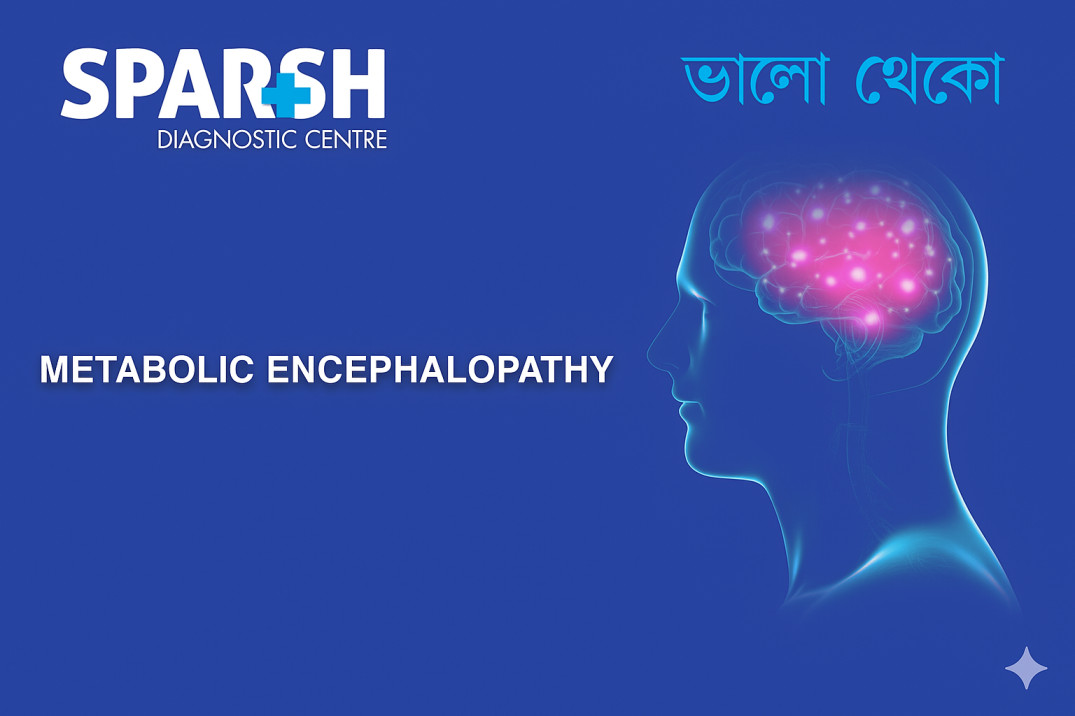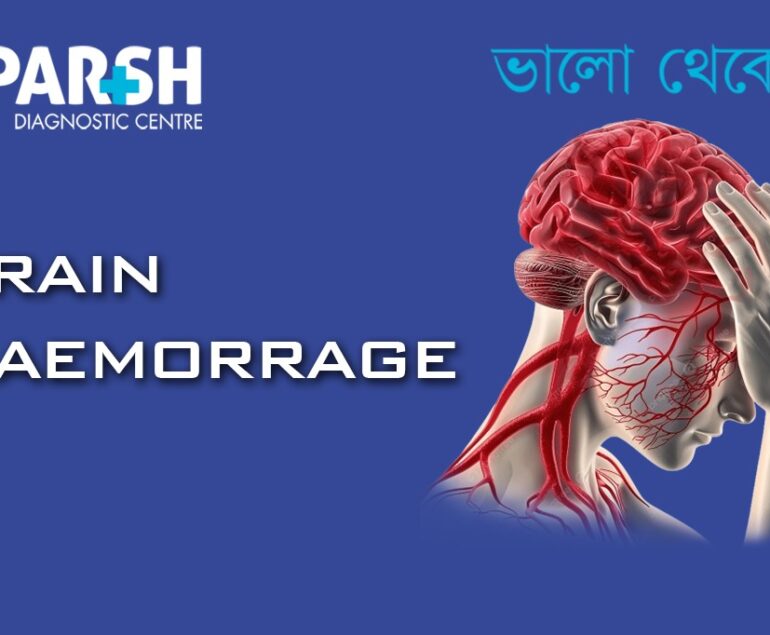Metabolic encephalopathy is a serious but potentially reversible brain disorder resulting from an imbalance in the body’s metabolism. It occurs when the brain is exposed to toxic substances or deprived of essential nutrients and oxygen due to systemic illness. Unlike structural brain diseases, metabolic encephalopathy stems from underlying medical conditions such as liver failure, kidney disease, infections, or severe electrolyte disturbances.
Understanding the causes, symptoms, and management of metabolic encephalopathy is crucial because early diagnosis can prevent permanent brain damage and significantly improve recovery outcomes.
What Is Metabolic Encephalopathy?
Metabolic encephalopathy refers to diffuse brain dysfunction caused by systemic metabolic derangements rather than direct brain injury. These metabolic abnormalities alter the brain’s chemical environment, disrupting neurotransmission and neuronal function.
It is a reversible condition if treated promptly, but prolonged exposure to toxic metabolites or untreated underlying disorders can cause irreversible brain damage or coma.
Types of Metabolic Encephalopathy
Metabolic encephalopathy is not a single disorder but a syndrome with various causes and subtypes depending on the underlying systemic issue. Some of the major types include:
1. Hepatic Encephalopathy
Occurs in patients with liver failure due to the buildup of ammonia and other toxins that the liver cannot clear. These toxins impair brain function, leading to confusion, personality changes, and coma in severe cases.
2. Uremic Encephalopathy
Develops in people with chronic kidney failure, when toxins such as urea accumulate in the bloodstream. Symptoms include lethargy, tremors, cognitive impairment, and seizures.
3. Hypoglycemic Encephalopathy
Results from low blood sugar levels, depriving the brain of energy. It may cause confusion, seizures, or loss of consciousness.
4. Hyperglycemic Encephalopathy
Caused by extremely high blood sugar levels, often seen in uncontrolled diabetes, leading to dehydration and altered mental states.
5. Hypoxic-Ischemic Encephalopathy
Occurs when the brain doesn’t receive enough oxygen, such as during cardiac arrest or respiratory failure.
6. Septic Encephalopathy
Associated with severe infections or sepsis, where inflammatory mediators and toxins impair brain function.
7. Electrolyte Imbalance-Related Encephalopathy
Imbalances in sodium, calcium, or magnesium can disrupt neuronal signaling and cause brain dysfunction.
Causes of Metabolic Encephalopathy
Metabolic encephalopathy can be triggered by numerous medical conditions that alter the body’s normal metabolic state. The most common causes include:
Drug or toxin exposure (alcohol, sedatives, heavy metals)
Endocrine disorders (thyroid or adrenal dysfunction)
Each of these conditions disrupts the delicate balance of chemicals and energy metabolism in the brain, leading to impaired neuronal function and altered consciousness.
Symptoms of Metabolic Encephalopathy
Symptoms vary depending on the underlying cause, severity, and duration of metabolic disturbance. Common clinical features include:
Cognitive and Behavioral Changes
Confusion and disorientation
Memory loss
Difficulty concentrating
Drowsiness or lethargy
Personality or mood changes
Neurological Symptoms
Tremors or muscle twitching
Unsteady gait (ataxia)
Slurred speech
Visual disturbances
Seizures
Severe Cases
Stupor
Coma
Abnormal posturing
In conditions like hepatic encephalopathy, patients may also develop flapping tremors (asterixis) — a hallmark neurological sign.
Stages of Metabolic Encephalopathy
The condition often progresses through several stages, particularly in hepatic encephalopathy:
Stage 1: Mild confusion, mood changes, sleep disturbances.
Stage 2: Lethargy, disorientation, inappropriate behavior.
Stage 3: Severe confusion, incoherent speech, stupor.
Stage 4: Coma and loss of brainstem reflexes.
Early recognition during stages 1–2 is critical for full recovery.
Diagnosis of Metabolic Encephalopathy
Diagnosing metabolic encephalopathy involves identifying both brain dysfunction and the underlying metabolic cause. At Sparsh Diagnostic Centre, comprehensive diagnostic services help pinpoint the specific metabolic derangement responsible.
1. Clinical Evaluation
A detailed medical history and neurological examination help determine the onset, progression, and possible triggers.
2. Laboratory Tests
Blood glucose levels
Electrolyte panel (sodium, potassium, calcium, magnesium)
Arterial blood gases (ABG)
Ammonia levels
Infection markers (CRP, blood culture)
3. Imaging Tests
CT or MRI Brain – to rule out structural brain damage or stroke.
EEG (Electroencephalogram) – often shows generalized slowing, a typical finding in metabolic encephalopathy.
4. Additional Evaluations
Toxicology screening for drug or alcohol toxicity.
Thyroid and adrenal function tests.
Treatment of Metabolic Encephalopathy
The primary goal of treatment is to correct the underlying metabolic imbalance and support brain function.
1. Address the Root Cause
Liver disease: Lactulose and rifaximin reduce ammonia production.
Kidney failure: Dialysis removes toxins.
Hypoglycemia: Immediate glucose administration.
Infection: Intravenous antibiotics.
Electrolyte imbalance: Controlled correction of sodium, calcium, or magnesium.
2. Supportive Care
Oxygen therapy to improve brain oxygenation.
Intravenous fluids to restore hydration and electrolyte balance.
Nutritional support, including thiamine supplementation in alcohol-related cases.
Seizure control with anticonvulsant medications if needed.
3. Monitoring and Prevention
Continuous monitoring of vital signs, blood chemistry, and neurological status is essential. Preventing recurrence involves managing the underlying chronic illness and maintaining proper metabolic balance.
Prognosis and Recovery
Metabolic encephalopathy is often reversible with timely diagnosis and treatment. However, prognosis depends on:
The speed of medical intervention
The underlying cause
The severity and duration of brain dysfunction
Patients who receive prompt treatment for reversible causes like hypoglycemia or electrolyte imbalance usually recover fully. Those with advanced liver or kidney disease may have recurrent episodes if the primary condition persists.
Complications
If untreated, metabolic encephalopathy can lead to:
Permanent brain injury
Seizures and coma
Respiratory failure
Death (in severe untreated cases)
Hence, early medical attention is crucial for preventing long-term neurological damage.
Prevention Tips
Manage chronic liver or kidney diseases under regular medical supervision.
Keep blood sugar and electrolytes in the normal range.
Avoid alcohol and drugs that can harm the liver or brain.
Ensure proper nutrition and hydration.
Seek medical care promptly if experiencing confusion or drowsiness during illness.
Get regular health checkups and lab tests at trusted diagnostic centres like Sparsh Diagnostic Centre.
Metabolic Encephalopathy vs Structural Brain Disorders
| Feature | Metabolic Encephalopathy | Structural Brain Disorder |
|---|---|---|
| Cause | Systemic metabolic imbalance | Localized brain injury (tumor, stroke, trauma) |
| Onset | Gradual or fluctuating | Sudden or focal |
| Symptoms | Generalized confusion, lethargy | Focal neurological deficits |
| Imaging Findings | Usually normal | Structural abnormalities |
| Reversibility | Often reversible | Often irreversible |
When to See a Doctor
Seek immediate medical help if you or someone you know experiences:
Sudden confusion or memory loss
Seizures
Slurred speech or unsteady walking
Drowsiness or loss of consciousness
Rapid worsening of existing liver or kidney disease symptoms
Early intervention can make the difference between full recovery and permanent brain damage.
Metabolic encephalopathy is a serious but treatable condition that reflects the brain’s sensitivity to systemic metabolic changes. It serves as a warning sign of underlying organ dysfunction — often the liver, kidneys, or endocrine system. Prompt recognition and correction of the metabolic disturbance can restore normal brain function and prevent life-threatening complications.
At Sparsh Diagnostic Centre, we provide advanced diagnostic facilities to detect metabolic imbalances early, ensuring timely and accurate management for conditions like metabolic encephalopathy.
Frequently Asked Questions (FAQs)
1. Is metabolic encephalopathy reversible?
Yes. In most cases, metabolic encephalopathy is reversible if the underlying metabolic disturbance is promptly corrected.
2. What are the early warning signs?
The earliest signs include confusion, forgetfulness, sleep pattern changes, and subtle mood alterations.
3. How long does it take to recover?
Recovery time depends on the cause and severity. Mild cases may resolve within days, while severe cases may take weeks.
4. Can metabolic encephalopathy cause permanent brain damage?
If left untreated, prolonged metabolic dysfunction can cause irreversible brain injury or coma.
5. How is hepatic encephalopathy related to metabolic encephalopathy?
Hepatic encephalopathy is a type of metabolic encephalopathy caused by liver failure and the accumulation of ammonia and toxins in the blood.
6. What tests help confirm metabolic encephalopathy?
Blood tests for liver and kidney function, glucose, electrolytes, and ammonia levels, along with imaging and EEG, are commonly used for diagnosis.
7. Can it be prevented?
Yes, by managing chronic conditions such as diabetes, liver disease, and kidney disorders, and maintaining proper hydration and nutrition.
8. Is metabolic encephalopathy life-threatening?
If untreated, it can progress to coma or death. However, with timely diagnosis and treatment, most patients recover fully.
For accurate diagnosis and timely management of metabolic encephalopathy, visit Sparsh Diagnostic Centre.
Our expert team ensures comprehensive metabolic evaluations and precise diagnostic testing to support effective treatment and recovery.
#BhaloTheko
Disclaimer:
No content on this site, regardless of date, should ever be used as a substitute for direct medical advice from your doctor or other qualified clinician.

Sparsh Diagnostic Centre Doctor List
![]()






[…] Coma or metabolic encephalopathy […]